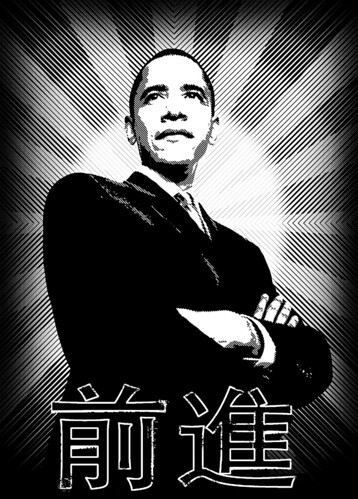
The outlines of the Obama Administration’s China policies are starting to come into focus. First was the mention of China on the new Whitehouse.gov:
Seek New Partnerships in Asia: Obama and Biden will forge a more effective framework in Asia that goes beyond bilateral agreements, occasional summits, and ad hoc arrangements, such as the six-party talks on North Korea. They will maintain strong ties with allies like Japan, South Korea and Australia; work to build an infrastructure with countries in East Asia that can promote stability and prosperity; and work to ensure that China plays by international rules.
That was a bit more forceful than “responsible stakeholder”. Now incoming Treasury Secretary Timothy Geithner has mentioned in his confirmation hearings that China is “manipulating” its currency. To be clear, Geithner was quoting Obama’s campaign rhetoric and did not state policy.
“President Obama — backed by the conclusions of a broad range of economists — believes that China is manipulating its currency,” Mr. Geithner wrote. He stopped short of charging that China is manipulating its currency intentionally to gain an unfair trade advantage, as the 1988 law requires for an official citation of currency “manipulation.”
The statement was in response to a question from Chuck Schumer – everyone in China ought to understand how he rolls. Little noticed so far, however, has been Hillary Clinton’s choice of Kurt M Campbell for assistant secretary of East Asian Affairs. A former assistant Secretary of Defense for Asia and the Pacific during the Clinton Administration, Campbell has been fairly visible in the media, writing about the schism between sinologists, a semi-regular column in the Taipei Times, and frequent appearances on NPR. He appears to be a defense-oriented centrist, supporting multilateral talks in Korea and maintaining the American strategic position in the Pacific. He’ll be worth watching in the future.
Photo by January20th2009 @ Flickr.